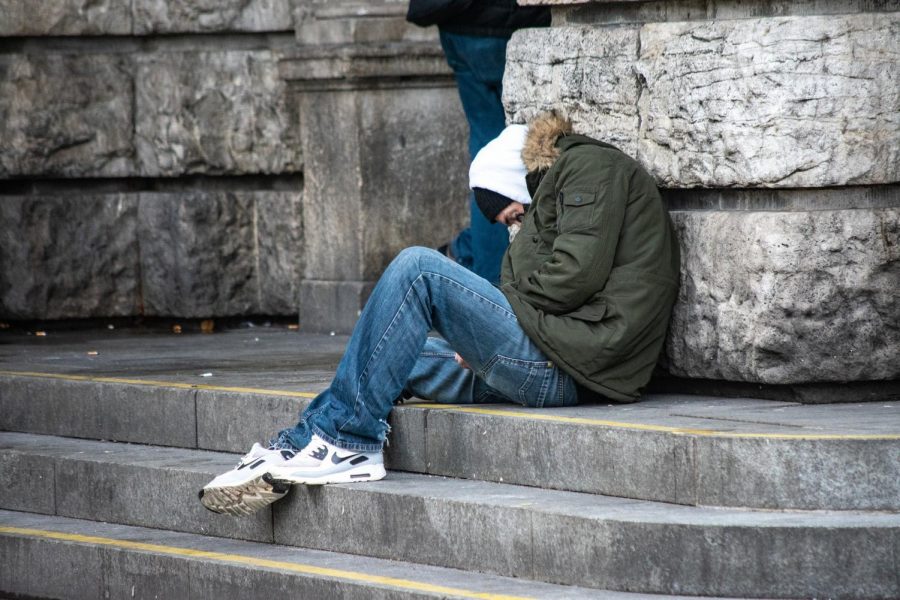Is it Worth Giving Money to Homeless People?
November 11, 2019
Imagine getting of the Metra, heading out of Ogilvie Station, and then seeing a homeless person. Nearby pedestrians are minding their own business and carrying on with their lives while this person is sitting on the curb, holding up a sign about how their life led up to this current moment. They are famished, appear to be rugged and made eye contact with you to see whether or not you would be generous enough to donate even a penny. Many people choose to ignore the homeless, usually because they don’t know what their donation will be going towards or if the homeless person is lying about their socioeconomic status. However, as the rate of homelessness rises, the best solution would be for people to donate nonperishable items or services to the needy instead of their cash or spare change.
While homeless people are indeed homeless due to unemployment, eviction, etc. it is not the case for all bankrupt people. According to the Atlantic, the Department of Housing and Urban Development found that “six out of ten homeless respondents admitted problems with alcohol and drugs. Given the likelihood of self-reported bias, the actual number could be higher”. Given the various struggles of addiction, it can be difficult to determine whether or not a beggar will invest his newly funds on viable resources or enabling their addiction, thereby slandering donors’ good intentions.
Sophomore student Katie Price says, “…we don’t know what this person will use the money for. Instead, giving actual items or actual food to the homeless could help them because then you’ll know what they’ll do with it”.
While some may believe that it is better to donate resources than dollars, others believe that giving beggars money will help them seek better opportunities, and because it is, perhaps, morally correct. According to BBC News, the Advertising Standards Authority claims that those who produce ads about keeping wallets concealed due to suspected drug use in homeless populations are stimulating negative stereotypes.
One charity spokesman argues that “Not everyone who begs is homeless and not all homeless people will beg. Nevertheless, people who do beg are often some of the most vulnerable in our society, and many will be struggling with extreme poverty.”
Although destitutes struggle with compiling funds for supplies needed to survive on the streets, “Not everyone who begs is homeless”. According to Homeless Hub, the Canadian Medical Association Journal interviewed 54 panhandlers and discovered that “while all had been homeless at some point in their life, only 65% were currently homeless. 24% had their own room or apartment but needed to panhandle to gain additional income.” People who were once homeless are still panhandling in order to keep up with their rent. By understanding that most people would dismiss panhandlers who aren’t homeless, non-homeless people tend to lie in order to have continuous income. If most panhandlers were upfront about their struggle with addiction or about their economic status, they would be ignored in the streets with empty pockets.
Regardless, it is devastating to see the needy on the street. But according to WWS student Jessica Benjamin, “money doesn’t necessarily improve the situation.” Instead of giving away hard cash, people can give away gift cards to restaurants or clothing store that the homeless or other panhandlers can utilize at a later time. Passing pedestrians can also volunteer their time at shelters or donate more personal care items, like sanitary pads for homeless women. But if someone on the street is going to spend money by giving it to a panhandler, as WWS student Ben Howell would argue, they should “spend money on fixing the broken system that continues to put more and more families on the street.”


